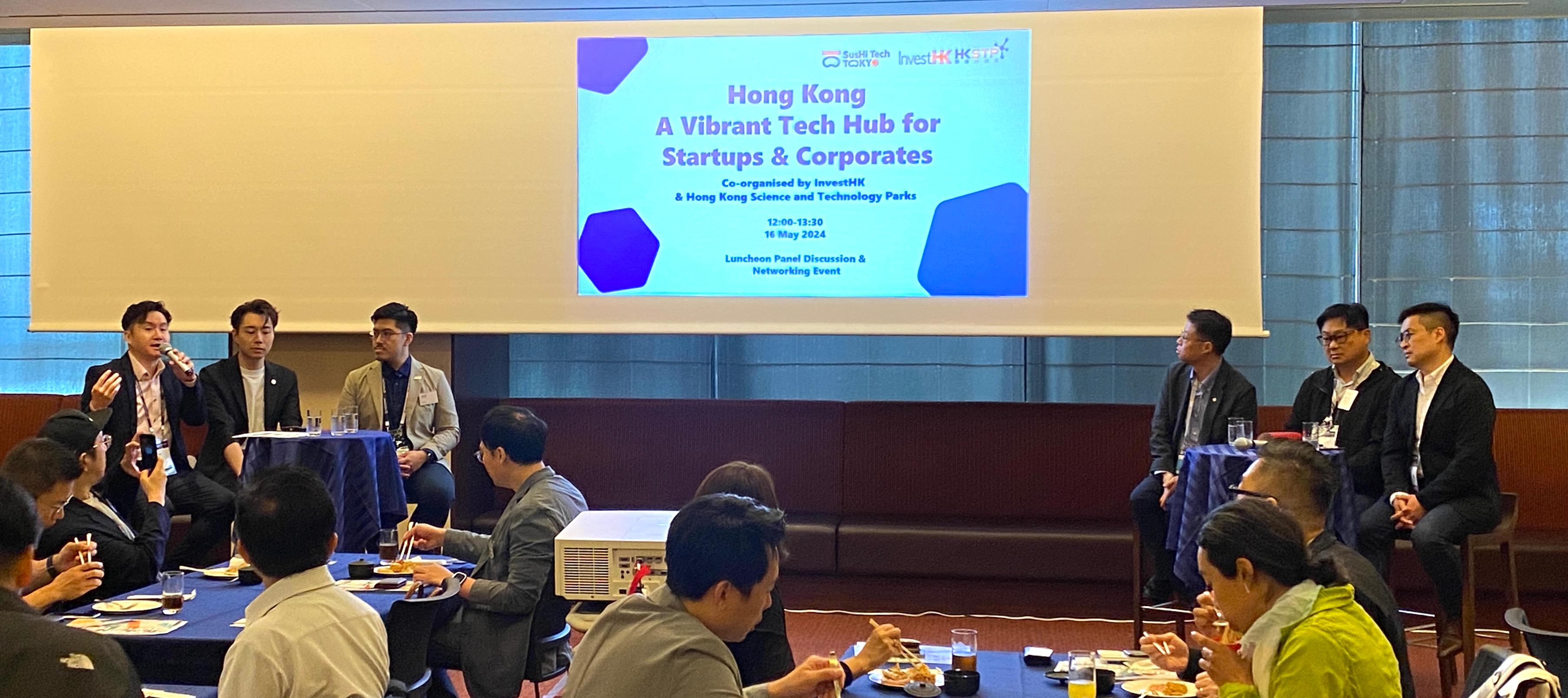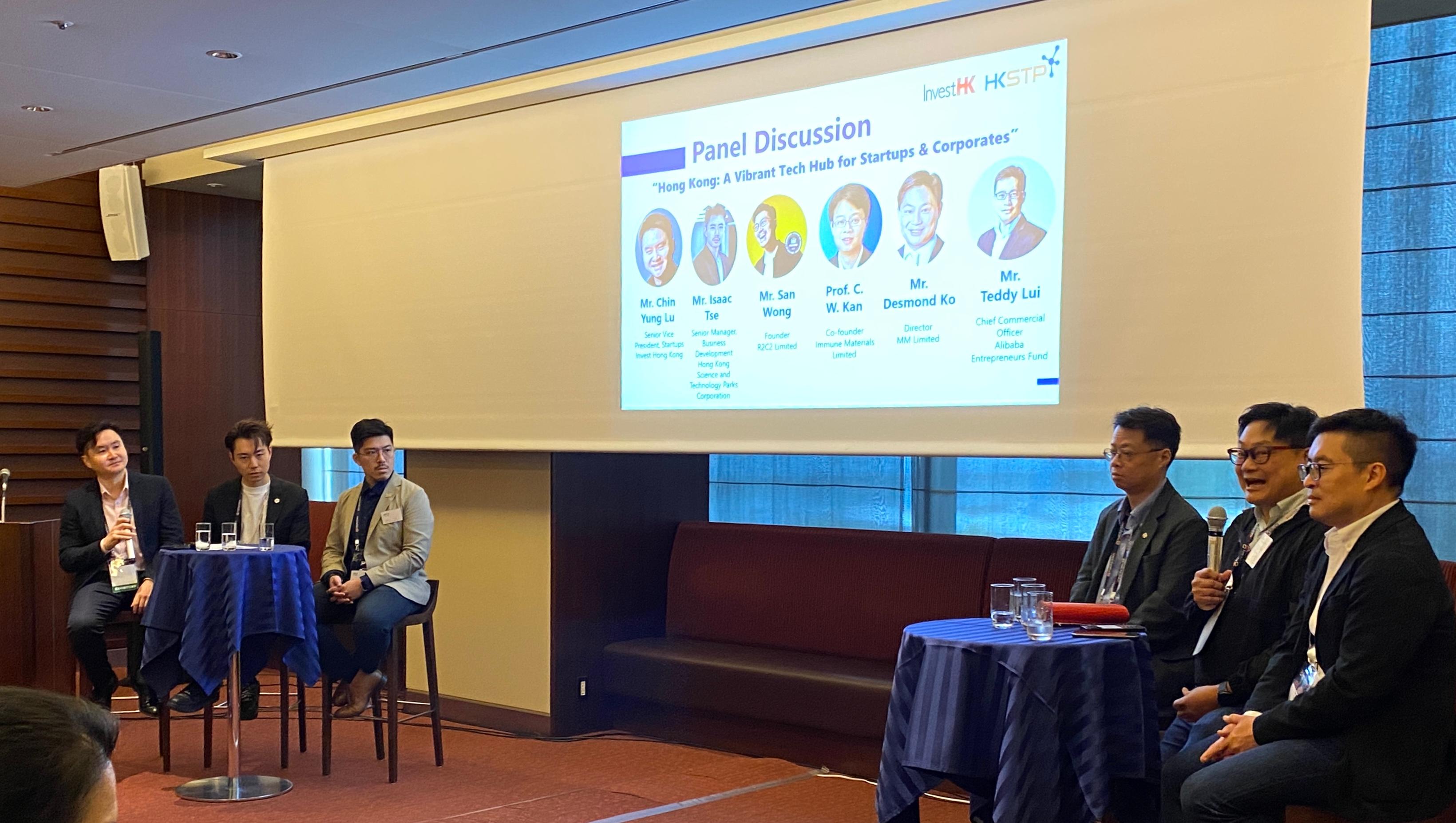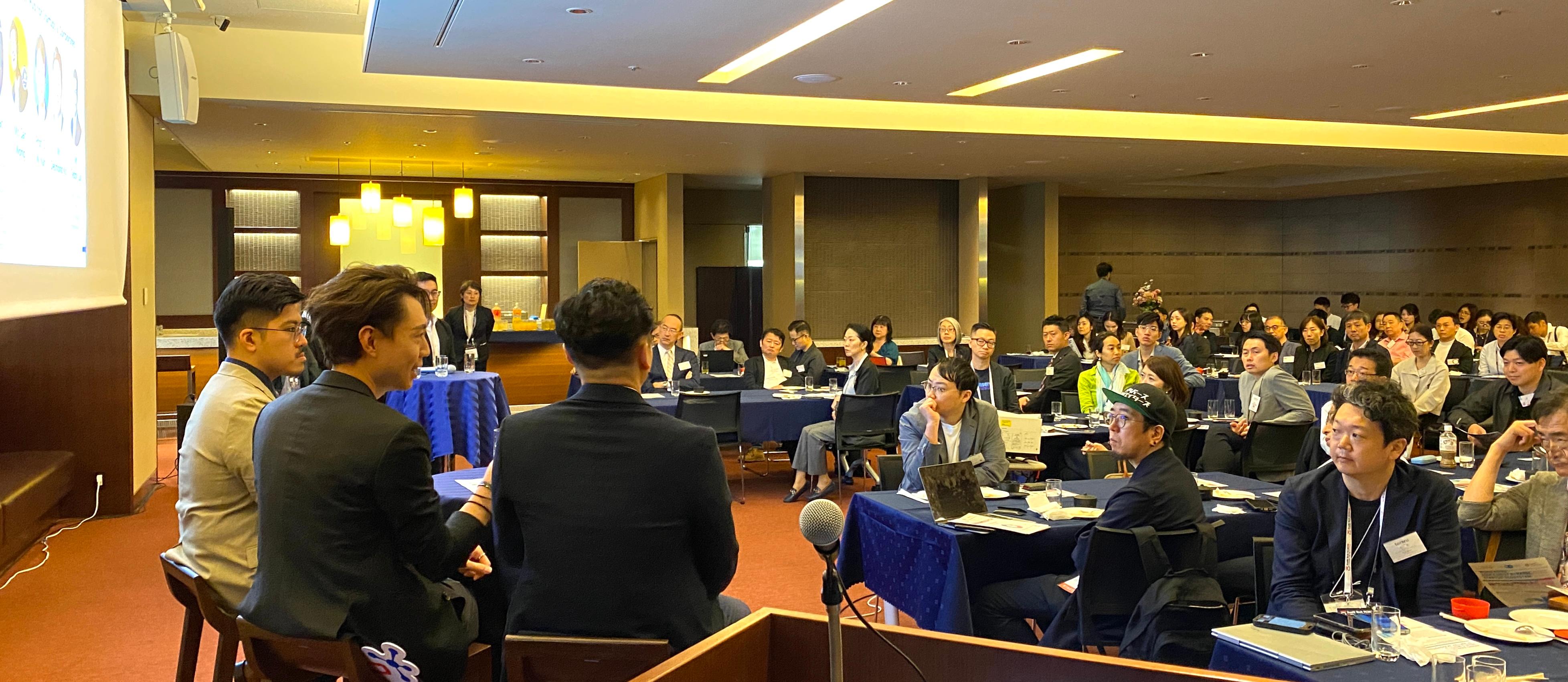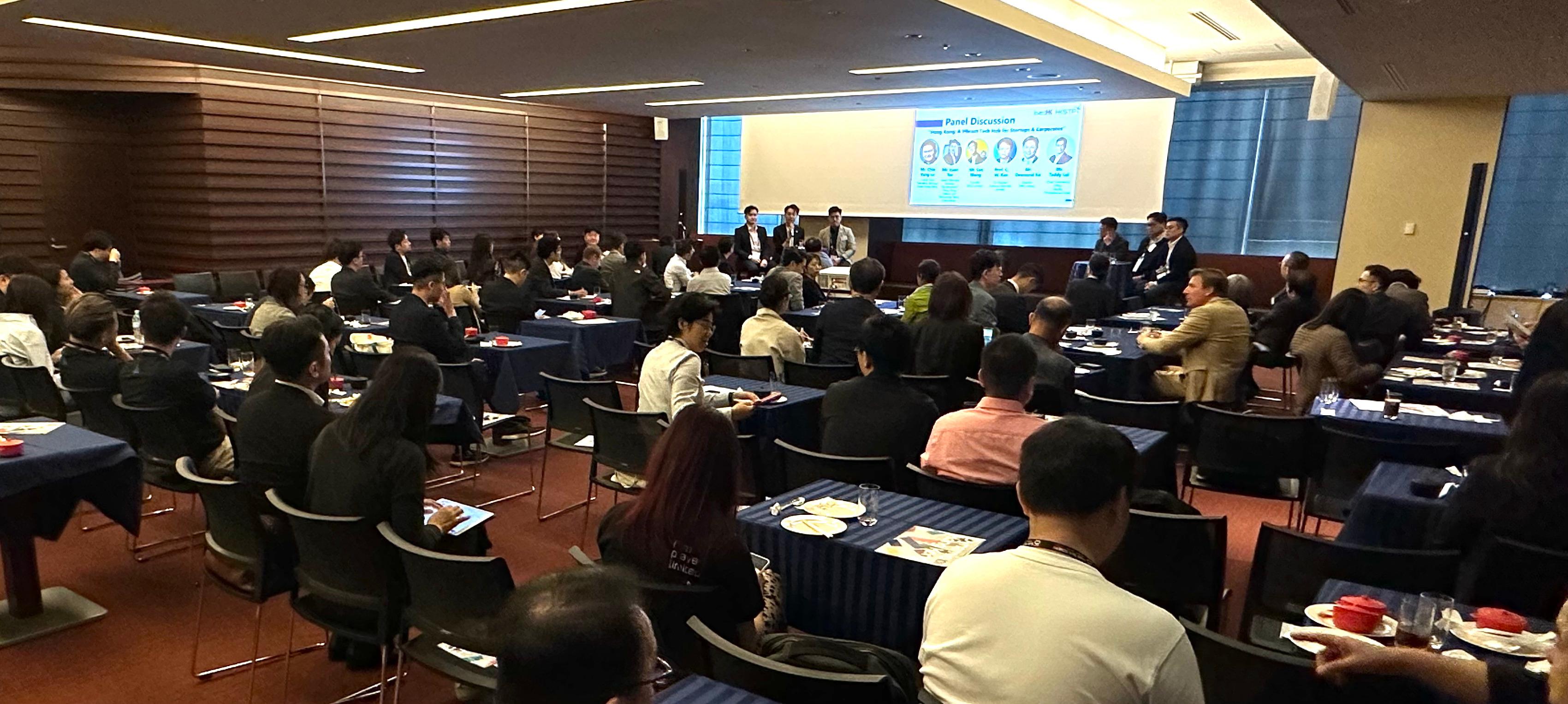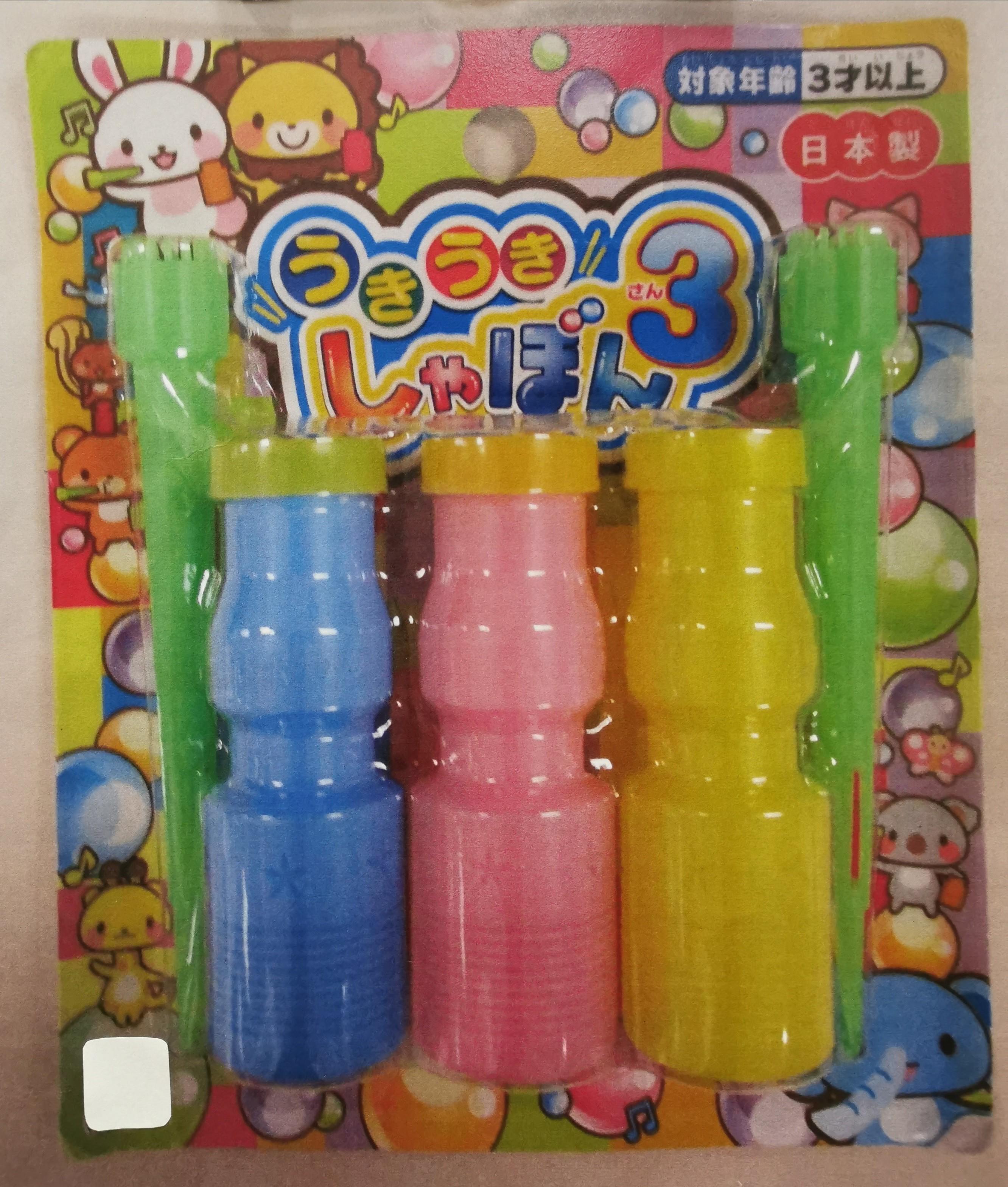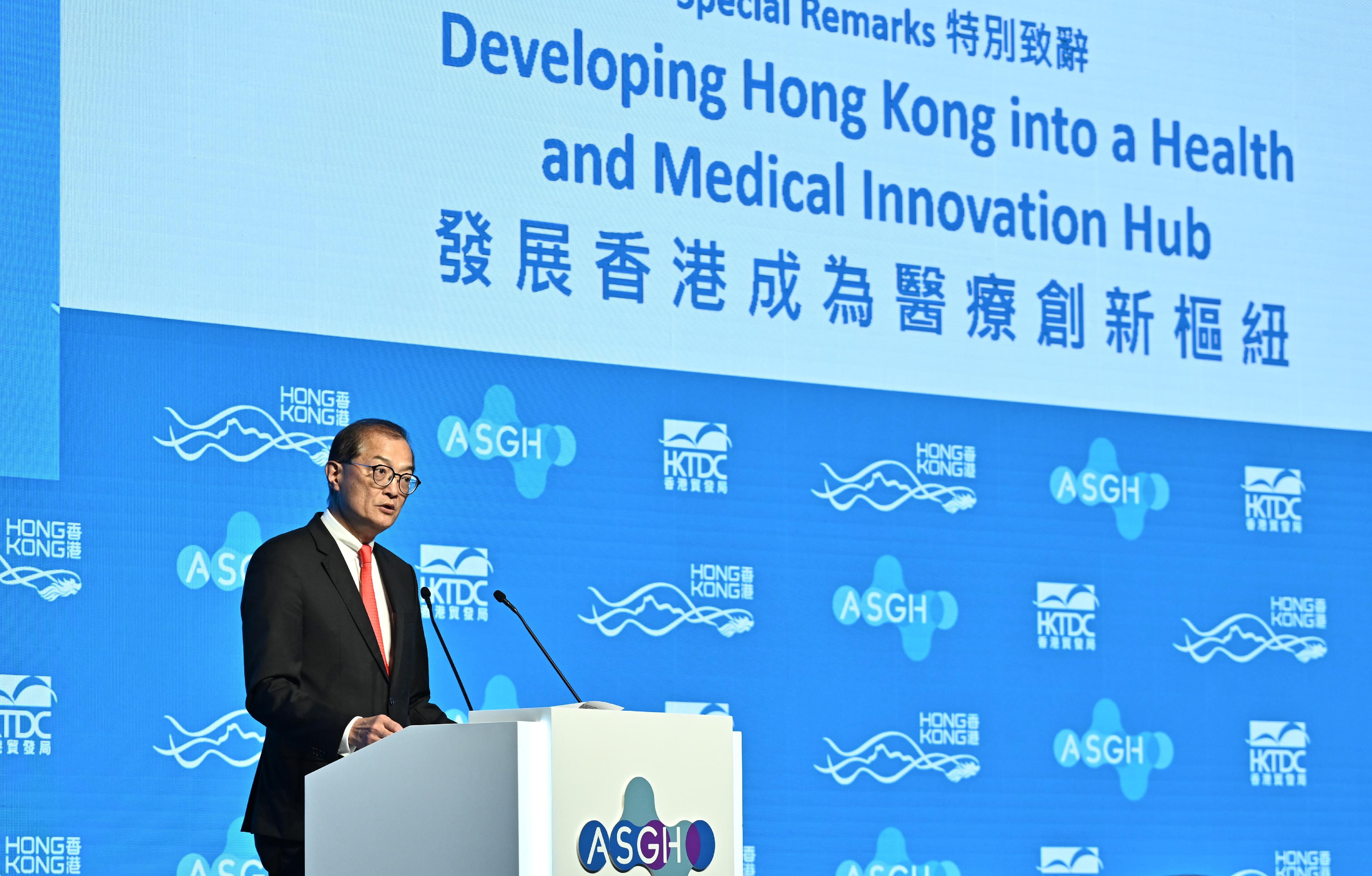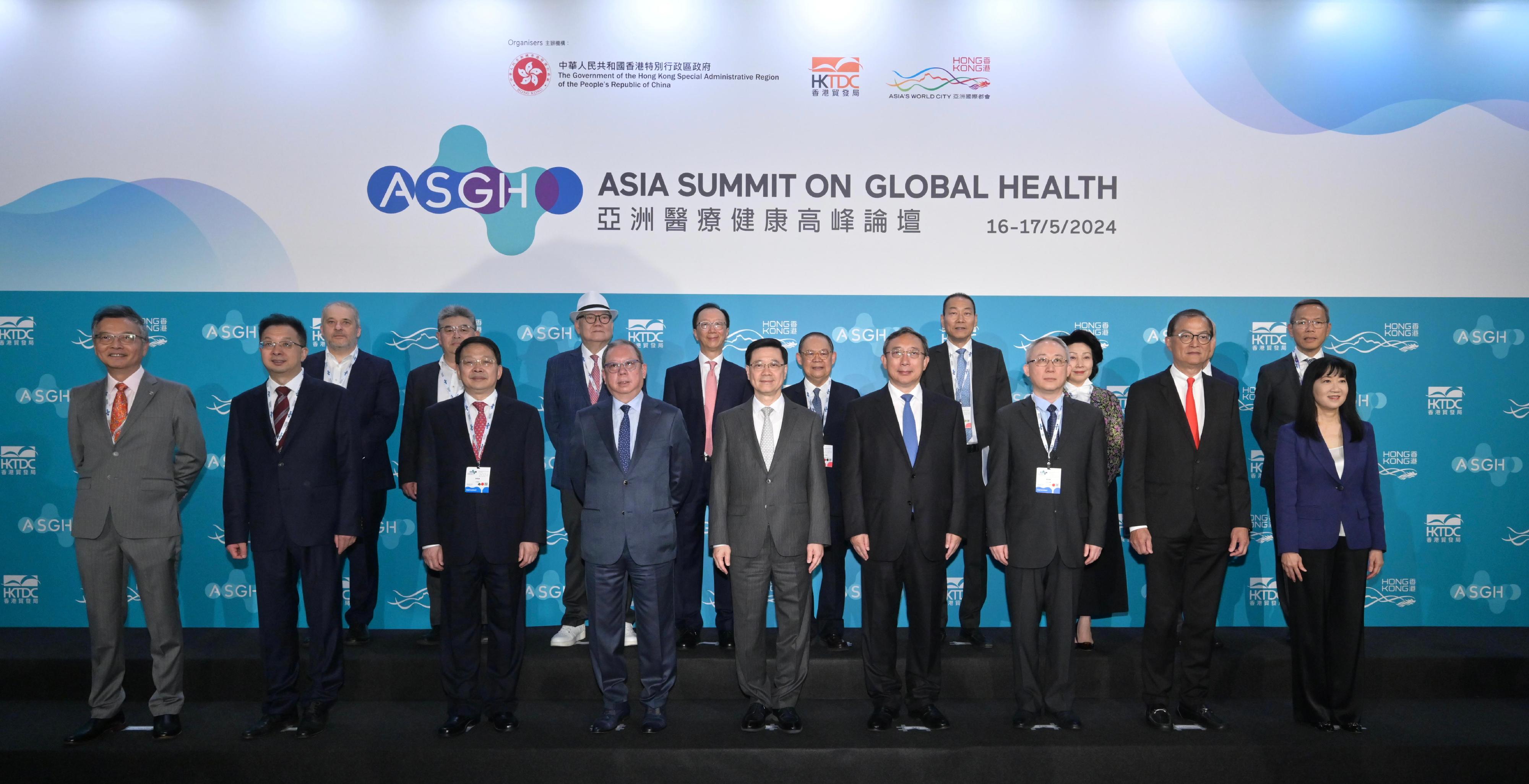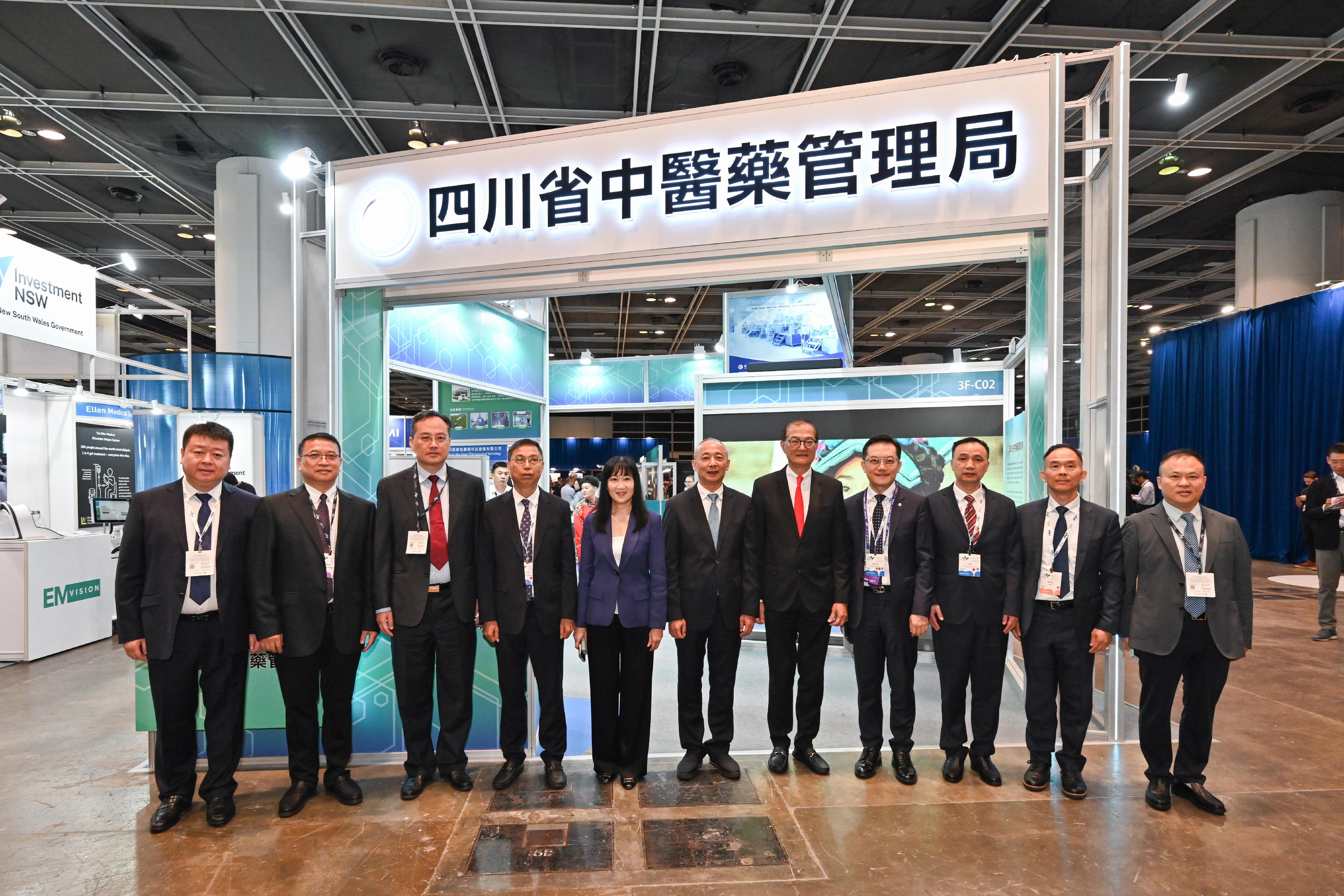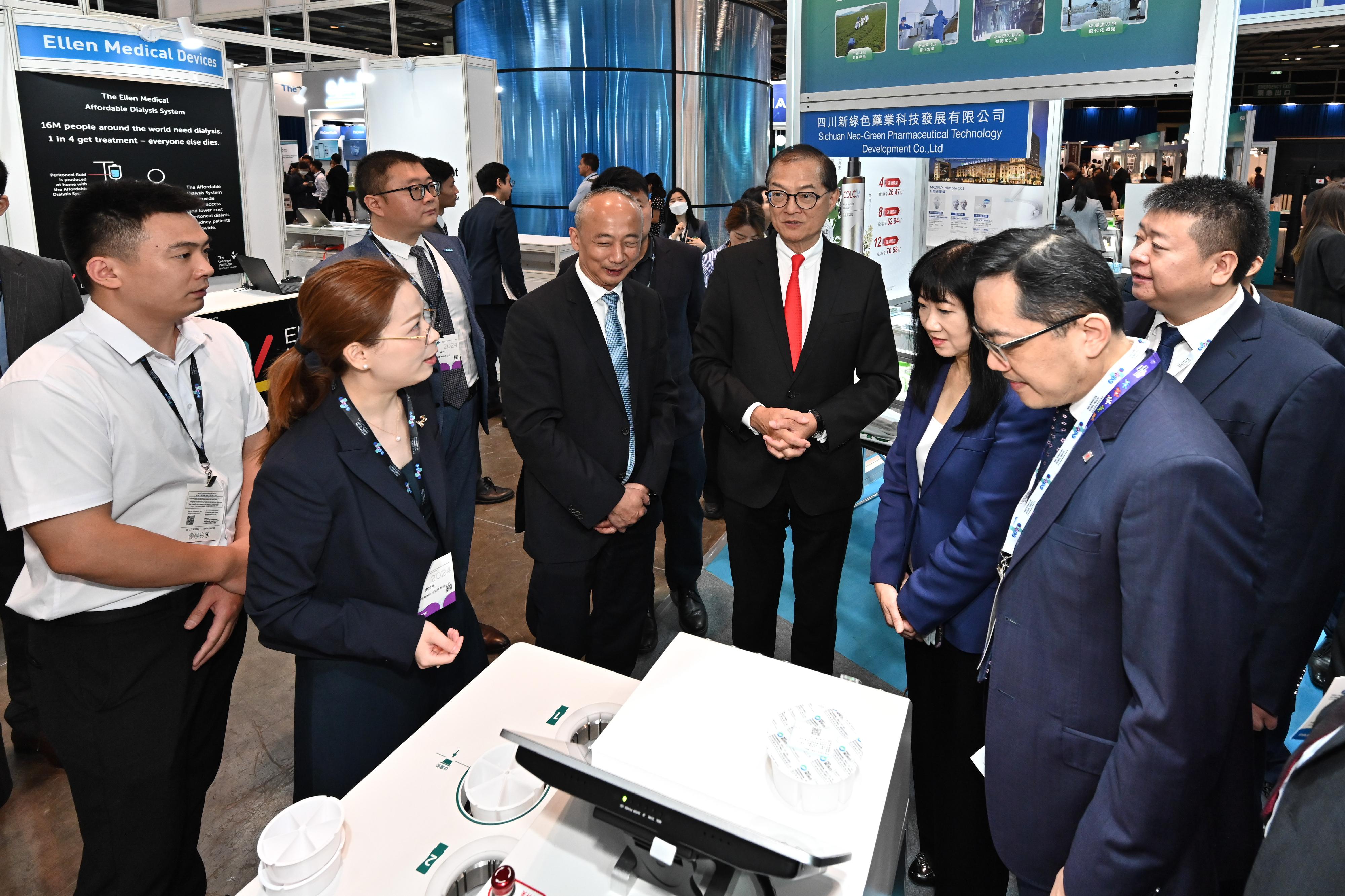Following is the speech by the Secretary for Health, Professor Lo Chung-mau, at the Plenary Session – Unleashing Opportunities: Co-create a Synergistic Ecosystem for Health Innovation of Asia Summit on Global Health today (May 16):
Director General Mr He Yaqiong (Director General of the Department of Consumer Goods Industry of the Ministry of Industry and Information Technology of the People’s Republic of China), Professor C S Lau (Dean of Medicine of the University of Hong Kong, Professor Lau Chak-sing), who is the Panel Chair for this session, distinguished speakers, guests, ladies and gentlemen,
I am very excited to kick start this Plenary Session which is entitled Unleashing opportunities: Co-create a Synergistic Ecosystem for Health Innovation. I will share with you why and how Hong Kong can serve as the major contributor and co-creator of such a synergistic ecosystem that will translate innovations in life science from the Mainland and abroad into biomedical and healthcare advancements to benefit global health.
I wish to update you on two subjects. One relates to the unique opportunity for biomedical innovation in Hong Kong, and the other is the progress of developing Hong Kong into a health and medical innovation centre in the Guangdong-Hong Kong-Macao Greater Bay Area (GBA).
Hong Kong has always been a leader in healthcare. Our advantages in world-leading healthcare standards and efficiency are the envy of many others. Hong Kong ranks globally among the best in various health indexes such as the longest life expectancy and the lowest infant or maternal mortality. Our dual-tract public/private healthcare system takes up only 8.5 per cent of our GDP and is ranked one of the best in the Health-Efficiency Index. Our highly subsidised public healthcare system provides universal healthcare access for all citizens and ensures that no one is denied adequate medical treatment through lack of means. The unified clinical management system for all public hospitals under the Hospital Authority (HA), together with our eHealth digital health system for all citizens, provides an excellent platform for big-data analysis and the conduct of clinical trials.
Our city also boasts a rich concentration of five global top 100 universities, two top 40 medical schools, and a wealth of prestigious scholars in life science and healthcare. Our clinical trial centres at the two medical schools are internationally reputable, with good practices and standards, and capable of generating data recognised by regulatory bodies on the Mainland and overseas.
As Asia’s world city, Hong Kong is located right in the heart of Asia with excellent national and international connectedness. Our education policy of biliteracy and trilingualism signifies the unique advantages of the language environment in Hong Kong. The city has long been an international centre for finance, commerce and trade, logistics and, above all, exchange of ideas and cultures, so as to continue with the advantages of Hong Kong.
But Hong Kong is not only Asia’s world city. It is also China’s world city. As a Special Administrative Region of China under “one country, two systems”, Hong Kong remains the only place in the world where the global advantage and the China advantage come together in a single city. Apart from being closely connected to the world, we are privileged to have the strong support from the Central People’s Government.
I would like to highlight three national policies which provide a very powerful drive for our development as a medical and health innovation hub. First, the Outline of the 14th Five-Year Plan for Economic and Social Development and Long-Range Objectives Through the Year 2035 of the People’s Republic of China has clearly indicated support for Hong Kong’s development into an international innovation and technology centre, and biomedical innovation is a major focus.
Second, the State Council promulgated the “Development Plan for Shenzhen Park of Hetao Shenzhen-Hong Kong Science and Technology Innovation Co-operation Zone” in August 2023. This visionary plan provides that the Hetao Co-operation Zone, located at the two sides of the Shenzhen River, will be jointly developed by Hong Kong and Shenzhen under the “one river, two banks” and “one zone, two parks” vision, allowing both places to leverage their respective competitive advantages. Specifically, the Development Plan highlighted the focus in life science innovation and the development of an international clinical trial centre for the Greater Bay Area. With new measures to provide a cross-boundary flow of various innovation elements, the Co-operation Zone will serve as a bridgehead for intensive clinical trial co-operation between the two places. It will allow Hong Kong to give perfect play to its unique advantage of enjoying full support of the motherland and being closely connected to the world in driving biomedical innovation and technology in the GBA.
Last but not the least, the third national policy that I must highlight is the special measure of using Hong Kong-registered drugs and medical devices used in Hong Kong public hospitals in the GBA (港澳藥械通). The National Medical Product Administration announced the Work Plan for Regulatory Innovation and Development of Pharmaceutical and Medical Device in the GBA back in November 2020. It allows designated Mainland healthcare institutions operating in the GBA to use drugs and medical devices registered and used in Hong Kong and Macao’s public hospitals with urgent clinical needs. The measure was implemented successfully at the University of Hong Kong-Shenzhen Hospital on a trial basis between January and July 2021 and has since then been extended in two batches to a total of 19 designated healthcare institutions in nine cities in the GBA involving the use of a total of 56 drugs and medical devices approved in six batches.
This new policy not only serves as a facilitation measure for Hong Kong residents working and living in the Mainland cities of the GBA to seek healthcare services. It is a vote of confidence in the healthcare standard of Hong Kong and a policy innovation for healthcare advancement integration and standardisation in the GBA. It effectively creates a “green channel” for the expedited entry of advanced medical products registered and used safely and effectively in Hong Kong into the Mainland cities of the GBA. The real world date generated may add to the clinical trial data to facilitate a more rapid evaluation by the regulatory authority.
Our vision in health and medical innovation
It is with such a background that October 2023, the Chief Executive of the HKSAR (Hong Kong Special Administrative Region) announced in his Policy Address that the Government will develop Hong Kong into a health and medical innovation hub. The policies include first of all, reforming our evaluation and registration mechanism for new drugs and medical devices, and secondly, promoting biomedical research and development (R&D) as well as clinical trials in Hong Kong. Seven months since the announcement of this policy, I am happy to briefly describe the progress for you.
Regulatory innovations for drugs and medical devices
Regarding the reform in drugs and medical devices regulation, the HKSAR Government is now on track to establish the Hong Kong Centre for Medical Products Regulation or CMPR, with the long-term objective of establishing an internationally recognised authority that registers medical products under the “primary evaluation” approach based on clinical trial data without the need for prior approval by other regulatory authorities. This will help accelerate the clinical use of innovative drugs and medical devices for better healthcare, and to drive the development of the R&D by pharmaceutical industries and the testing of medical products.
The Health Bureau of the HKSAR Government has just renewed the Co-operation Agreement on Regulation of Drugs with the National Medical Products Administration (NMPA) last week. Both sides agreed to set up regular liaison and co-ordination arrangements between the to-be-established CMPR and the NMPA. In October 2023, with the strong support from the NMPA, Hong Kong, China has successfully acceded to the International Council for Harmonisation of Technical Requirements for Pharmaceuticals for Human Use as an observer. With this new observership, we will keep pace with the latest developments in drug regulation and enhance the local drug regulatory regime.
Coupled with this are our efforts in expediting the registration of new drugs and transition to “primary evaluation”. Our new “1+” drug registration mechanism came into effect last November. Under this new mechanism, applications for registration of new drugs effective for treatment of life-threatening or severely debilitating diseases in Hong Kong require the submission of only one registration certificate from a reference drug regulatory authority instead of two originally, provided they are supported by local clinical data and the scope of application is recognised by relevant local experts. In addition to the important mission of expediting the registration of advanced life-saving drugs, the “1+” mechanism will also strengthen our local capacity in drug evaluation and attract pharmaceuticals to conduct clinical trials for earlier registration in Hong Kong.
In addition, the Hospital Authority will expedite the introduction of new drugs registered under the new mechanism into the drug formulary by centralising the evaluation process and allowing submission directly to the HA Drug Advisory Committee. This streamlined approach aims to reduce the processing time for listing of new drugs on the HA Drug Formulary by half, to around five months. The implementation of this new process is expected to take place by the end of this year.
Using Hong Kong-registered drugs and medical devices used in Hong Kong public hospitals in the GBA
Regarding medical devices supplied in Hong Kong, the HKSAR Government has implemented the Medical Device Administrative Control System or MDACS, a listing system for medical devices and traders with pre-market and post-market monitoring since the year 2004. The MDACS incorporates internationally accepted best practices and, at the same time, provides flexibility and capability to cope with the rapidly advancing medical technology. Looking ahead, there is a need to reform and strengthen the regulatory regime for medical devices in Hong Kong through legislation with a view to ensuring the safety, quality and performance as well as accelerating the launch of advanced medical devices for better healthcare. In the meantime, the HKSAR Government will also work closely with the Mainland authorities in allowing designated healthcare institutions in the GBA to use MDACS-listed medical devices under the special measure, 港澳藥械通.
Promoting clinical trials
The second part of the policy innovation relates to the promotion of clinical trials that are crucial in translating basic research from laboratory into marketing authorisation and clinical application at the bedside. With a high level of medical expertise and research standards in Hong Kong, the quality of data generated from our clinical trials is widely recognised by drug regulatory authorities on the Mainland and abroad.
To further leverage the advantage, we will set up the Greater Bay Area International Clinical Trial Institute (GBAICTI) in the Hetao Shenzhen-Hong Kong Science and Technology Innovation Co-operation Zone. The GBAICTI will provide a one-stop clinical trial support platform for biomedical research institutions and industries. It will co-ordinate the clinical trial resources in the public and private healthcare sectors in Hong Kong, and co-operate with the Shenzhen counterpart under the “one river, two banks” and “one zone, two parks” strategies, allowing both places to leverage their respective competitive advantages.
We are working in full steam with the Shenzhen side on the establishment of this Greater Bay Area international clinical trial co-operation platform that will meet both the national and international standards. The goal is to promote the co-ordinated development of a clinical trial network within the GBA that will capitalise on the strengths of both Hong Kong and Shenzhen in the area of biomedical innovation and clinical trials, i.e. the excellent life science research and experience of international co-operation in clinical trials in Hong Kong; and the volume of clinical cases in the 86 million population in the GBA; as well as the capacity for rapid translation of biomedical innovation into the ecosystem of industry chain in Shenzhen. The initiative will serve as a gateway for biomedical innovation from the Mainland to go abroad and to bring in those from overseas.
On a separate note, in line with the above government policy, the Hospital Authority will implement a number of measures to facilitate medical professionals in the public healthcare sector to conduct clinical research. These include setting up a Central Clinical Research and Innovation Office in the HA Head Office, establishing a Cluster Clinical Research Support Office in each of the seven clusters, expediting the ethics review, providing incentives and acknowledgement to staff as well as developing information technology infrastructure to support clinical research.
Closing
Ladies and gentlemen, when I took up the office of the Secretary for Health in July 2022, I set three missions for myself. First, controlling COVID-19 with an evidence-based approach; second, bringing better healthcare to Hong Kong; and third, pioneering beyond Hong Kong. With the unwavering support of the Central Government and under the strong leadership of the Chief Executive, the first mission has been successfully achieved. Developing Hong Kong into a health and medical innovation hub serves both my second and third missions. With the reform in medical product registration and innovation in biomedical research in Hong Kong, we can bring advanced and perhaps more affordable healthcare to the people of Hong Kong, the GBA and beyond, and co-create a synergistic ecosystem for the biomedical industry in the GBA. Hong Kong has never been a follower. We are always a trailblazer and pioneer. As President Xi Jinping has made a remark: “Reform is always on the road, but the road is never smooth” (改é�©æ°¸é� 在路上,改é�©ä¹‹è·¯ç„¡å�¦é€”). Hong Kong is on the road to reform its medical product registration and innovate biomedical research in the coming decade. With the national endorsement and our policy innovations, together with the can-do spirit of our people bolstered with our traditional and new advantages, I am confident that Hong Kong will overcome all challenges and achieve its goal of developing into a health and medical innovation hub. I urge your preparation and participation. Thank you.
read more


